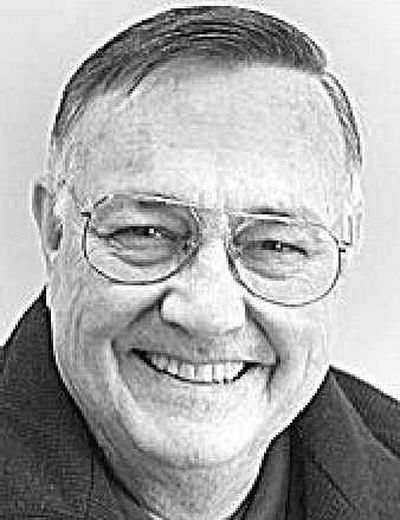Dec. 7 a time to thank all our servicemen

The e-mail’s cryptic title, “A Yellow Ribbon for Aaron,” said it all. Another person from my extended family was heading off to yet another war. Their parents, siblings, neighbors and family friends will support “their serviceman” with worry, packages, prayers and hope.
I’ve been through this drill five or six times now. I’ve watched cousins, uncles, a brother, buddies, some students, and now their children ship out to war. One would think I’d get used to dealing with newscasts featuring body counts. But it hasn’t happened yet.
In fact, whenever the reminder that my nation is involved in another conflict flashes across a TV screen or my computer monitor, my mind inevitably ratchets back to my first glimpse at the devil called war.
My brother and I were feeling like heroes as we burst through the front door. We’d walked home from Mass in record time. Expecting a lavish welcoming ceremony, I was ticked off when the parents hardly recognized our grandiose entrance. Instead they remained seated, their eyes riveted on the radio as they intently listened to its message.
Since I was a typical 4-year-old kid, the words emanating from the radio’s speaker didn’t mean a heck of a lot to me. But as I watched my parent’s body language and listened to their fearful, terse conversations with the many friends who dropped by the house to listen to the subsequent rebroadcasts of the message, I knew that something pretty significant was going on.
Whenever I hear the words, “Day of Infamy,” I immediately focus on that moment, time and place.
Like many of the men in our country, Dad and his younger brother went directly to the recruiter’s office to enlist. I thought that was pretty exciting stuff. While I remember Dad’s anger when the letter, which labeled him 4-F, came in the mail, saying goodbye to Uncle Ky hurt the most. We saw several cousins and some of the neighborhood’s older boys go to war over the next four to five years. Fortunately, every one of them returned.
Our family suffered only one loss during World War II. It was Daddy.
A heart attack took him in the spring of ‘43, just before the war’s tide began to flow in our direction.
I found the returning veterans were a disappointing bunch to be around. Time and again I tried to elicit a good story from one of those guys. I was looking for ratification of some of the stuff I’d seen on our local movie theater’s screen. It didn’t happen.
The ex-soldiers, sailors, Marines, Coast Guard men and people who had served in the Merchant Marine had been there and done that. They weren’t looking for accolades or hero worship from their young neighbors. They simply wanted to live the rest of their lives in productive peace. In doing so they transformed our nation, leaving in their wake a legacy which has been unmatched in the annals of history.
Since the end of World War II, we’ve become accustomed to war without commitment. We watch the news, grouse, and some people stand on the street corner demonstrating against our latest venture; but most of us rattle on going about our business as usual. There’s been no rationing of gas or sugar. We haven’t been asked to save tin cans, newsprint, or scrap metal for the war effort. The wars have simply been out there.
Consequently when Johnny comes marching home again, we haven’t experienced the national sense of relief we did at the end of World War II, nor have we stepped out there to welcome our soldiers home. In my view, it’s a darn shame that large segments of our nation’s population have just began to figure out that the kids who served in Vietnam did their assigned job valiantly and are most deserving of our recognition and support.
Dec. 7, 1941, is a day that was born in infamy. But we Americans celebrate it with a sense of accomplishment.
Will you join me in saying “Howdy” and “Thank you” to the folks who did the work?